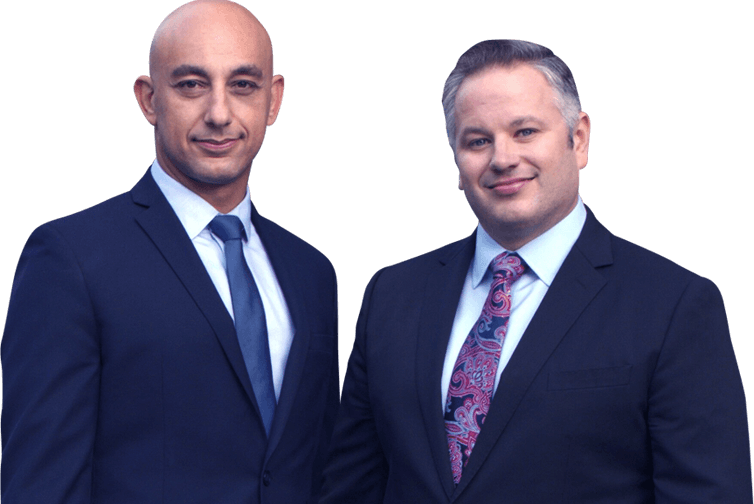When you’re in a car accident, it can be shocking—especially if you weren’t at fault.
Many people think that if they didn’t cause the accident, they won’t have much to worry about.
Unfortunately, even if you’re innocent, dealing with the consequences of an accident is not always easy.
This is because insurance companies don’t always play fair, and the other driver might try to shift the blame.
In this article, we will walk you through the steps to take after a car accident when you’re not at fault. By following these steps, you can protect your rights, avoid common pitfalls, and get the support you deserve.
The Immediate Actions That Make a Difference

1. Ensure Your Safety and the Safety of Others
After a car accident, the first moments are crucial, even if you’re not at fault.
Start by checking for injuries—both your own and anyone else’s. Call 911 if anyone is hurt, no matter how minor it seems.
Moving to a safe location, if possible, is next. Get yourself and your vehicle out of traffic to prevent further accidents.
2. Gather Evidence at the Scene – Go Beyond the Basics
Once you’re safe, start gathering evidence. Taking photos of the scene is primordial, but don’t stop there.
Capture more than just the cars. Take pictures of traffic lights, road signs, and any damage to nearby property.
Note the weather, road conditions, and even how the other driver behaves—these details can be useful if they later try to blame you.
3. Exchange Information Correctly
When exchanging information with the other driver, get their contact and insurance details, but also jot down the make, model, and color of their vehicle and their license plate number.
Finally, avoid discussing fault. Even saying “I’m sorry” could be twisted against you later.
These simple actions lay the groundwork for your claim, helping ensure you’re not unfairly held responsible for the accident.
Get Your Medical Evaluation – Even if You Feel Okay

Why Delayed Injuries are Common
Even if you feel fine right after an accident, getting a medical check-up can positively impact your claim. Many injuries don’t show up immediately—your body might be in shock, or adrenaline could mask the pain.
Injuries like whiplash, which affects your neck, and soft tissue injuries, which impact muscles and ligaments, often don’t start hurting until hours or even days later. Psychological effects, like anxiety or trouble sleeping, can also appear over time.
The Medical Record is Evidence
Beyond your health, seeing a doctor right away helps create an important medical record.
Even a note about minor pain can support your claim if symptoms worsen.
This early documentation shows that the injury likely resulted from the accident and not something else.
Tips on Communicating with Healthcare Providers
When you talk to your healthcare provider, be honest about how you feel, even if it seems minor.
Describe any discomfort, but avoid exaggerating. For example, instead of saying, “I’m totally fine,” describe specific symptoms, like “I have some neck stiffness.”
Accurate medical records help if you need to make a claim later, as they clearly connect your injuries to the accident.
This evidence can make all the difference in proving your case.
The Role of Witnesses – Don’t Underestimate Their Power

Identifying and Approaching Witnesses
Witnesses can play a huge role in your case, especially when you’re not at fault.
Neutral, third-party witnesses are powerful because they don’t have a personal stake—they’re simply sharing what they saw.
Their accounts can be more credible to insurance companies or in court, helping support your version of events.
If there are people nearby who saw the accident, approach them politely.
A simple, “Hi, I’m gathering information. Could I get your contact details in case I need help confirming what happened?” usually works well.
If they’re willing, ask them to describe what they saw while it’s fresh in their mind.
Even short statements—like confirming which car ran the red light—can make a big difference later.
Securing Statements Early
Getting this information quickly is essential. Memories fade, and witnesses may forget details or become harder to reach as time goes by.
In some cases, the other driver might even try to change their story, but having clear witness statements can keep the facts straight.
This early effort helps protect you from unfair blame and strengthens your case.
Tactics Insurance Companies Use When You’re Not at Fault

Insurance Tactic #1: A Friendly and Understanding “Ally”
Even if you’re not at fault, the other driver’s insurance company is not on your side.
Their goal is to pay as little as possible, so their adjusters are trained to use tactics that reduce or deny claims.
They might downplay your injuries, argue that some damage existed before the accident, or suggest that you share some blame.
In addition, they may sound friendly, but their goal is to protect their company’s bottom line, not your recovery.
Insurance Tactic #2: Pressure to Settle Quickly
Another common tactic is pressuring you to settle quickly.
They may offer a low payment right away, hoping you’ll take it before realizing the full extent of your injuries or repair costs.
Settling too soon can mean you’re left with unpaid medical bills or car repairs not fully covered.
Always think twice before accepting a first offer.
Insurance Tactic #3: Informal Conversations to “Clarify” Details
Adjusters may casually call to “clarify” parts of the accident, asking you seemingly harmless questions.
These conversations may feel informal, but their goal is often to catch you off-guard.
They might ask leading questions or get you to downplay your injuries or car damage.
To protect yourself, keep every interaction documented, avoid off-the-record chats, and consider sticking to written communication, which leaves less room for interpretation or misquoting.
Working with an Attorney – When and Why It’s Critical
Why Even Clear-Cut Cases Often Require Legal Help
Even if you’re not at fault and the case seems straightforward, legal help can make a big difference.
Insurance companies are in the business of minimizing payouts, and their adjusters are skilled at reducing claim values, even when liability seems clear.
Without legal guidance, you might unknowingly accept a lower settlement that doesn’t fully cover your expenses.
An experienced car accident lawyer can push back against these tactics, helping you get fair compensation for medical bills, lost income, and other costs.
The Added Value an Attorney Brings
A personal injury attorney brings several advantages to your case. They know how to secure evidence like traffic camera footage, witness statements, and accident reports to strengthen your claim.
If needed, they can bring in experts, like accident reconstruction specialists, to support your case.
Attorneys handle negotiations with insurance companies, which can be overwhelming on your own, and they ensure your claim is valued accurately, considering all possible future costs.
Red Flags that Suggest You Need an Attorney Immediately
Some situations make it especially important to get legal help right away. These are signs you need an attorney:
- Your injuries are serious,
- There’s a dispute over who caused the accident
- The insurance company is pushing back, or
- Using aggressive tactics
A lawyer can protect your rights, build a strong case, and prevent you from being taken advantage of in these complex situations.
Document Everything – Building a “Paper Trail” for Your Claim
From Repair Receipts to Pain Journals
After an accident, detailed records can significantly strengthen your claim.
Keep every repair receipt and bill for car damages. If you see a doctor, save every medical report, prescription, and receipt.
A pain journal can also help—record any physical pain or discomfort you experience and how it affects daily activities.
Noting symptoms like difficulty sleeping or problems with mobility can provide valuable insight into how the injury impacts your life.
Consistency is Key: Avoid Gaps in Documentation
Inconsistent documentation, like missing bills or scattered journal entries, can weaken your claim.
Gaps might raise questions about the severity or timeline of your injuries. By keeping records organized and up-to-date, you create a consistent story that makes your case stronger.
Using Technology to Your Advantage
Use apps or tools to store and organize evidence.
Digital note apps, like Google Keep or Evernote, can store photos, receipts, and notes in one place. Apps with reminder features can help you track symptoms and appointments over time, keeping your documentation comprehensive and accessible.
This digital “paper trail” makes it easier to present a well-supported claim if needed.
Consult an Experienced Car Accident Lawyer

If you’ve been in an accident and aren’t at fault, don’t leave your recovery to chance.
Navigating the claims process alone can be overwhelming, and without the right support, you could be left with unpaid bills and ongoing pain.
At El Dabe Ritter Trial Lawyers, we’re here to fight for the compensation you deserve, so you can focus on healing.
Call us for your free consultation, and let our team help you take the next steps toward justice.

